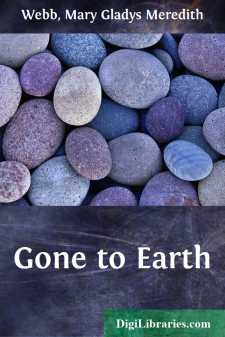Categories
- Antiques & Collectibles 13
- Architecture 36
- Art 48
- Bibles 22
- Biography & Autobiography 815
- Body, Mind & Spirit 144
- Business & Economics 28
- Children's Books 18
- Children's Fiction 14
- Computers 4
- Cooking 94
- Crafts & Hobbies 4
- Drama 346
- Education 58
- Family & Relationships 59
- Fiction 11834
- Games 19
- Gardening 17
- Health & Fitness 34
- History 1378
- House & Home 1
- Humor 147
- Juvenile Fiction 1873
- Juvenile Nonfiction 202
- Language Arts & Disciplines 89
- Law 16
- Literary Collections 686
- Literary Criticism 179
- Mathematics 13
- Medical 41
- Music 40
- Nature 179
- Non-Classifiable 1768
- Performing Arts 7
- Periodicals 1453
- Philosophy 65
- Photography 2
- Poetry 896
- Political Science 203
- Psychology 44
- Reference 154
- Religion 515
- Science 126
- Self-Help 85
- Social Science 83
- Sports & Recreation 34
- Study Aids 3
- Technology & Engineering 59
- Transportation 23
- Travel 463
- True Crime 29
Our website is made possible by displaying online advertisements to our visitors.
Please consider supporting us by disabling your ad blocker.
Gone to Earth
Description:
Excerpt
Chapter 1
Small feckless clouds were hurried across the vast untroubled sky—shepherdless, futile, imponderable—and were torn to fragments on the fangs of the mountains, so ending their ephemeral adventures with nothing of their fugitive existence left but a few tears.
It was cold in the Callow—a spinney of silver birches and larches that topped a round hill. A purple mist hinted of buds in the tree-tops, and a fainter purple haunted the vistas between the silver and brown boles.
Only the crudeness of youth was here as yet, and not its triumph—only the sharp calyx-point, the pricking tip of the bud, like spears, and not the paten of the leaf, the chalice of the flower.
For as yet spring had no flight, no song, but went like a half-fledged bird, hopping tentatively through the undergrowth. The bright springing mercury that carpeted the open spaces had only just hung out its pale flowers, and honeysuckle leaves were still tongues of green fire. Between the larch boles and under the thickets of honeysuckle and blackberry came a tawny silent form, wearing with the calm dignity of woodland creatures a beauty of eye and limb, a brilliance of tint, that few-women could have worn without self-consciousness. Clear-eyed, lithe, it stood for a moment in the full sunlight—a year-old fox, round-headed and velvet-footed. Then it slid into the shadows. A shrill whistle came from the interior of the wood, and the fox bounded towards it.
'Where you bin? You'm stray and lose yourself, certain sure!' said a girl's voice, chidingly motherly. 'And if you'm alost, I'm alost; so come you whome. The sun's undering, and there's bones for supper!'
With that she took to her heels, the little fox after her, racing down the Callow in the cold level light till they came to the Woodus's cottage.
Hazel Woodus, to whom the fox belonged, had always lived at the Callow. There her mother, a Welsh gipsy, had born her in bitter rebellion, hating marriage and a settled life and Abel Woodus as a wild cat hates a cage. She was a rover, born for the artist's joy and sorrow, and her spirit found no relief for its emotions; for it was dumb. To the linnet its flight, to the thrush its song; but she had neither flight nor song. Yet the tongueless thrush is a thrush still, and has golden music in its heart. The caged linnet may sit moping, but her soul knows the dip and rise of flight on an everlasting May morning.
All the things she felt and could not say, all the stored honey, the black hatred, the wistful homesickness for the unfenced wild—all that other women would have put into their prayers, she gave to Hazel. The whole force of her wayward heart flowed into the softly beating heart of her baby. It was as if she passionately flung the life she did not value into the arms of her child.
When Hazel was fourteen she died, leaving her treasure—an old, dirty, partially illegible manuscript-book of spells and charms and other gipsy lore—to her daughter.
Her one request was that she might be buried in the Callow under the yellow larch needles, and not in a churchyard....


